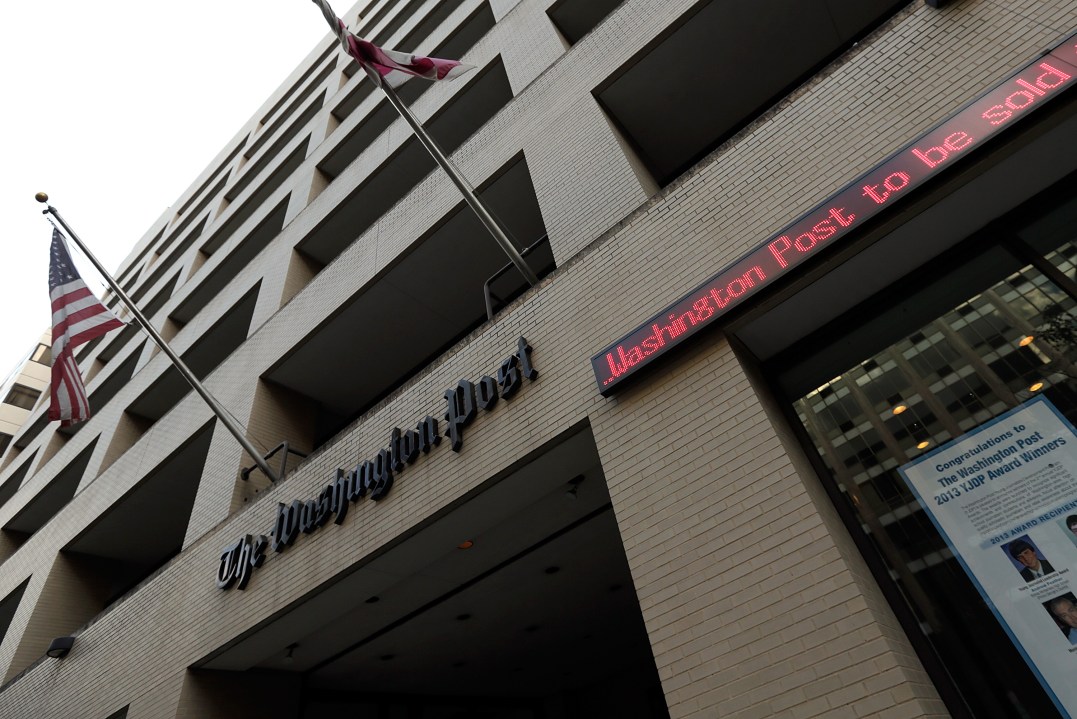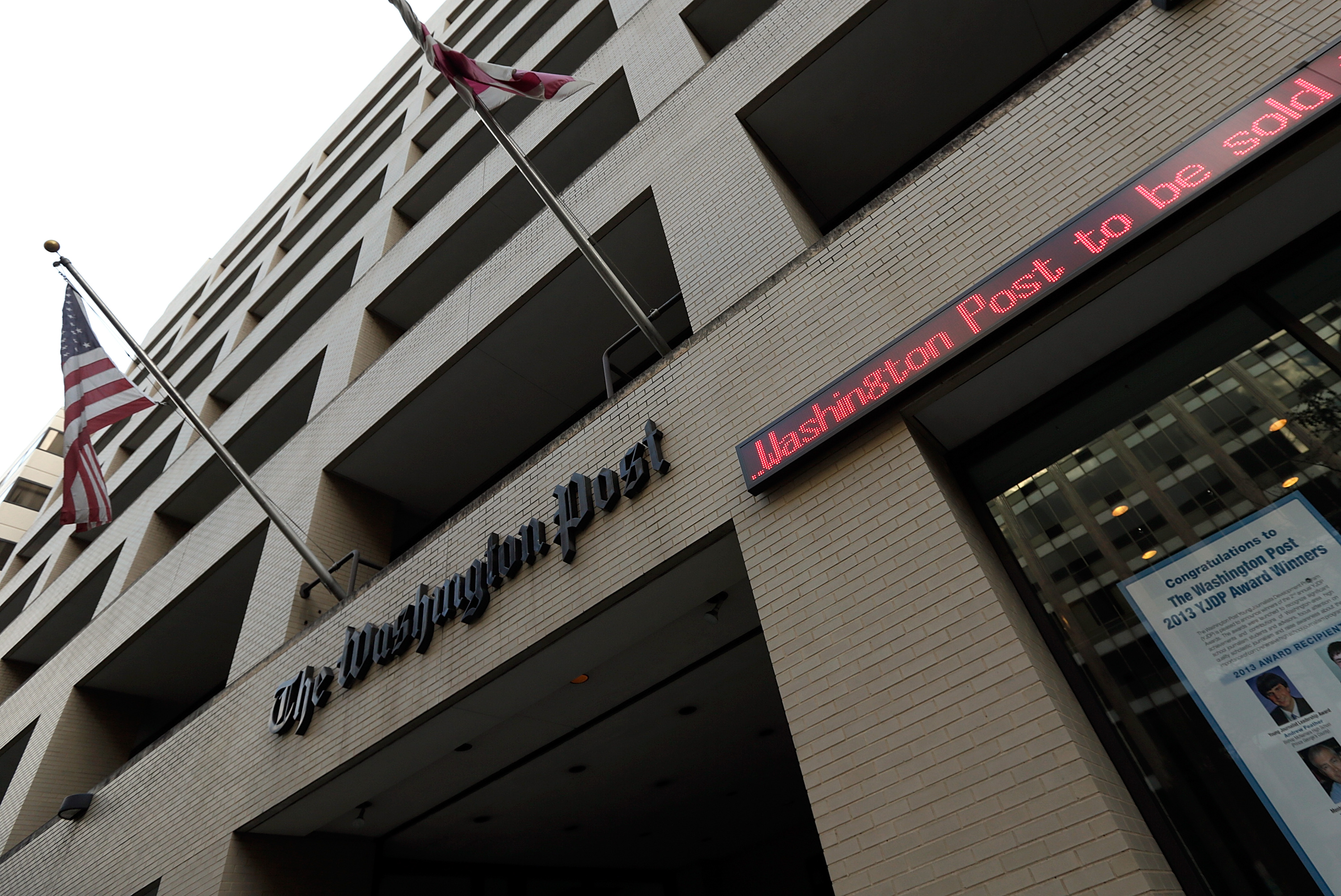So it has come to this. The Washington Post, paper of Bradlee and Woodward and Bernstein and all the rest, has been sold to Amazon’s Jeff Bezos. For $250m. That, apparently, is roughly the daily fluctuation in the value of Bezos’s Amazon shares. For a man worth more than $20bn, buying the Post is a bit like the rest of us buying a new bicycle.
That’s how far – and how fast – the once mighty Post has fallen. Even so, it’s startling that the Grahams, who have owned the paper for 80 years, have decided to sell. As I write at Think Scotland today, the Graham family has ‘sunk their own flagship the better to save the rest of the fleet’. Their departure from the newspaper business leaves the Sulzbergers, owners of the New York Times, as pretty much the last family-proprietors in the business. And even they may sell. There are, for instance, persistent rumours that Mike Bloomberg may one day try and buy the New York Times.
But if you need a billionaire vanity-philanthropist to survive in the newspaper business these days then what hope is there for a healthy future? And even rich men, as the Independent is discovering, have a limited tolerance for haemorraging cash. Even so, Bezos’s purchase is another reminder that the Tech Lords rule the world. How long, for instance, until Amazon buys Penguin and Random House? (Meanwhile: say what you like about Rupert Murdoch but at least he likes newspapers.)
There are two roads, I think, open to the media. You can be very, very large and survive or you can be very, very small and thrive. The choice is Walmart or the boutique corner shop; everything in between seems likely to be pulverised. (The Spectator, incidentally, is profitable. But help us remain that way by subscribing! £12 for 12 weeks is a great deal.)
In Britain the picture is complicated by the BBC’s privileged position. No other media entity is funded by what is effectively a poll tax. Consumers may reasonably say that, in 2013, the BBC should provide a comprehensive online news service as part of its public service remit. There’s something to that argument. It is also plausible, however, that the BBC’s guaranteed revenue stream distorts the market to such an extent that it isn’t any kind of free or fair market at all. When the BBC was a broadcaster but not, except for some magazines, a publisher this mattered less; now that it is a major publisher too it’s become more important.
Newspaper owners are not the most sympathetic characters. Many of them have made extraordinary mistakes too. Consider that Newsquest paid £216m for the Glasgow Herald group in 2003 or that Johnston Press purchased the Scotsman group of papers for an eye-popping £160m as recently as 2005. That’s basically what Bezos had paid for the Washington Post. Before the internet, owners (especially in America) could anticipate a 30 per cent return. Newspapers really were a license to print money. Now a 10 per cent return would represent a magnificent result. Proprietors have not always adjusted their valuations to reflect the new world.
The sale, last week, of the Boston Globe for $70m twenty years after the New York Times bought the company for $1.1 billion suggests the Globe’s buildings are worth nearly as much as the actual newspapers. Since total US newspaper revenues have halved in recent years that’s not perhaps so surprising even if it remains shocking.
Newspapers can no longer sell their readers to advertisers – there being many more efficient ways of targeting consumers these days – which means they struggle to sell journalism to their readers. It is a vicious circle of decline from which, in most cases, there seems no obvious escape.
Paywalls can help and perhaps the migration to tablets offers some grounds for hope but there’s not much silver even in the silver linings these days. Someone has to pay for journalism – it’s a commodity like any other! – and if advertisers won’t that means the buck must be passed to consumers. The trouble, of course, is that many people are now disinclined to pay anything at all for their news.
I fear it is, however, only a matter of time before a major British media brand goes under. The business is broken and billionaires are thin on the ground. Gloomy but there you have it.
Standard disclosure: in addition to writing for The Spectator I contribute a fortnightly column to The Times’s Scottish Edition and also write for Foreign Policy which is still owned by The Washington Post Company.








Comments